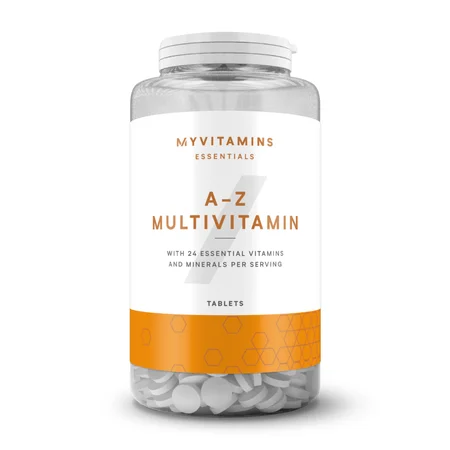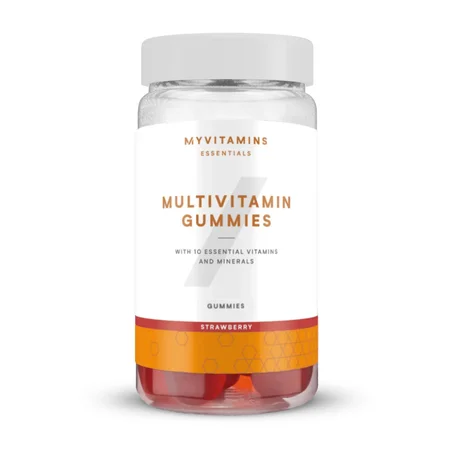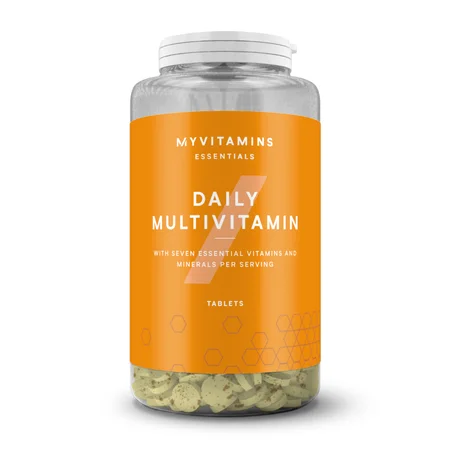How To Choose The Best Multivitamin for You

Multivitamins have been around for years, and they are very popular as you can get stocked on your vitamins, quickly and easily. Up to ⅓ of adults take one (or more) daily for so many different reasons.1 When it comes to a multivitamin, how do you know if you need one, and how do you choose the best one? We broke down what factors to consider when choosing a multivitamin to make sure you have the maximum positive impact on your health and wellness.
What are multivitamins?
Multivitamins, by definition, are a supplement that contains more than one vitamin within the same product. Typically, multivitamins are pills or capsules, but now they are also available in liquid forms, powered forms, and even candy-like gummy forms, which make them much easier to remember to take. They’ve been available since the 1940s and have steadily grown in popularity.1
Multivitamins were designed to make up for any deficiencies in your diet. It can be difficult to hit your goals for fruits, vegetables, and whole grains every single day, so the multivitamin was designed to ensure you got adequate amounts of the vitamins your body needs, consistently.

There are three primary types of multivitamins on the market today:
1. Broad spectrum, or once-daily multivitamins
2. High Potency or Mega Multivitamins
These types of multivitamins typically contain much more than 100% of the recommended daily amount of some vitamins and minerals, e.g., maybe 400% your recommended Vitamin A, C, and E. These are designed for people who want to boost a specific nutrient quickly and may contain other supplements or minerals.
3. Specialized or Targeted Multivitamins
These types of multivitamins are classified based on the goal they claim to support - like weight control, energy boosts, immunity, or hormone balancing. They often have high levels of a combination of vitamins, minerals, and other supplements like green tea extract or amino acids.

What are the benefits?
The benefits of multivitamins, as they were designed, is for those who need a boost in a specific nutrient that they aren’t able to obtain from their diet.
Taken regularly, a multivitamin can help both prevent vitamin deficiencies and potentially treat current deficiencies to bring your levels back to the optimal state.
When might you need multivitamins?
Based on your stage of life, medical conditions, dietary habits and other factors, there are many reasons why you might need a multivitamin to stay healthy. Consider the factors below to determine if you might benefit from a multivitamin.
If you are pregnant
When you are pregnant, your body is creating another human that needs all of the same (and even more of some) vitamins and minerals that your body needs. During pregnancy, folic acid and healthy fats are extremely important for your baby’s development, and you might benefit from some extra iron and B12 based on your blood levels. Luckily, there are many different multivitamins on the market - most doctors recommend taking them before you become pregnant and possibly even after you deliver if you plan to breastfeed.
As you age
Our bodies become less efficient at absorbing vitamins and minerals from our food as we age, especially Vitamins D and B12. Often these “senior” vitamins also contain calcium to support healthy bones, very important as we get older.
Allergies
If you have food allergies that prevent you from consuming entire food groups (like dairy or wheat), you may benefit from a multivitamin. Many dairy-alternatives also contain calcium (one of the primary nutrients most get from dairy products), but in different levels.
If you avoid all wheat products you might be missing many of the B vitamins in your diet, so could benefit from supplementing with a multivitamin.
Other Diet Restrictions
If you choose to follow a vegan or vegetarian diet, your diet is likely low in some nutrients that are found at high levels in meat and animal products, like iron and B12.
Also, if you have to follow a low fibre diet, a regular multivitamin would definitely be beneficial.
Medical Conditions
If you have any medical conditions, speak with your doctor about any potential concerns and they can check your blood levels to help you identify what types of multivitamins would be the most beneficial.

How to choose the best multivitamin for you
Gender makes a difference
Men and women are built differently - women are more prone to osteoporosis and need additional calcium while men are less likely to need additional iron. You might be able to choose a multivitamin geared toward your gender, but you can also check the labels to make sure any nutrients of concern are adequate while you’re shopping around.
Age counts
Our body’s needs change over time - we need some vitamins in higher levels as children and others as adults.
While Vitamins D and B12 are more important as you age, school aged children and young adults may benefit from more Vitamin C and zinc to prevent colds that spread easily amongst their friends.
Consider your goal
Work with your doctor or registered dietitian to examine your eating habits and select a vitamin truly based on what your body needs.
If you’re trying to lose weight, make sure your diet is still nutritionally adequate - and make up for it if it's been lacking. B Vitamins and D vitamins can support your energy. If you’re getting sick all of the time, maybe you need a multivitamin focused on immune support. Are you studying for an important exam? Try finding a multivitamin that supports brain health.
The important thing is to work with your doctor to find exactly what will be most beneficial to you.
Try our Quiz to find out...
Take Home Message
TRY THESE NEXT:

Are Protein Shakes Good Or Bad For You? | Myths & Facts
Protein myths debunked by a nutrition expert.

10 Best Vitamins & Supplements For Energy
Falling asleep at your desk? We're here to help.
Should You Be Taking BCAAs Before Bed?
Are you getting the most of your BCAAs? Let our expert give you the low-down on this supplement.

Claire is a Registered Dietitian through the Academy of Nutrition and Dietetics and a board-certified Health and Wellness Coach through the International Consortium for Health and Wellness Coaching. She has a Bachelor of Science in Biology and a Master’s degree in Clinical Dietetics and Nutrition from the University of Pittsburgh.
Talking and writing about food and fitness is at the heart of Claire’s ethos as she loves to use her experience to help others meet their health and wellness goals.
Claire is also a certified indoor cycling instructor and loves the mental and physical boost she gets from regular runs and yoga classes. When she’s not keeping fit herself, she’s cheering on her hometown’s sports teams in Pittsburgh, or cooking for her family in the kitchen.
Find out more about Claire’s experience here.






